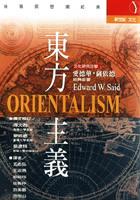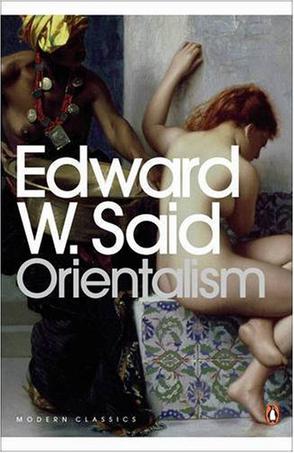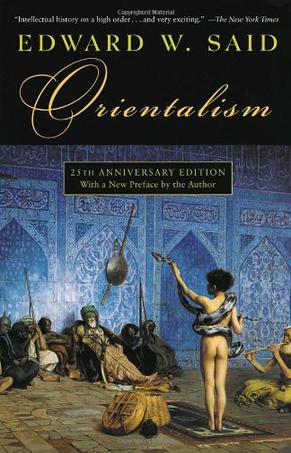欢迎来到相识电子书!
标签:Orientalism
-
东方主义
後殖民論述 本世紀的最後這十年中,影響美國的社會與人文學科領域最普遍與最深遠的一股思潮,毫無疑問的是「後殖民主義」與其影響。 薩依德的《東方主義》於一九七八年出版,立刻引起廣泛的迴響與不同立場的批評爭議,值至今日,已經有日文,德文,葡萄牙文,義大利文,土耳其文等二十多種譯本相繼出版。 薩依德的論述,其影響力甚至從中東,伊斯蘭世界到非洲,南亞,中南美洲等地。有如股排笑影,成為文化論述的重要著作。後殖民主義思潮的經典,也影響了整個西方對東方的研究方向與思考態度。 《東方主義》是一本有關歐美如何看待中東,阿拉伯和伊斯蘭世界的兩百年學術傳統的權力與想像的研究。薩依德以葛蘭西的文化霸權論以及富柯的知識權力論為其論述的基礎。將東方主義者在全球性的網絡中,所建構的西方殖民勢力對東方世界權力的支配,知識再生產之霸權架構,殖民與被殖民者,西方與東方之不對等權力關係以及煮奴式的霸權體系一一展演於前。 -
Orientalism
Said is best known for describing and critiquing "Orientalism", which he perceived as a constellation of false assumptions underlying Western attitudes toward the East. In Orientalism (1978), Said described the "subtle and persistent Eurocentric prejudice against Arabo-Islamic peoples and their culture."[12] He argued that a long tradition of false and romanticized images of Asia and the Middle East in Western culture had served as an implicit justification for Europe and America's colonial and imperial ambitions. Just as fiercely, he denounced the practice of Arab elites who internalized the American and British orientalists' ideas of Arabic culture. In 1980 Said criticized what he regarded as poor understanding of the Arab culture in the West: “ So far as the United States seems to be concerned, it is only a slight overstatement to say that Moslems and Arabs are essentially seen as either oil suppliers or potential terrorists. Very little of the detail, the human density, the passion of Arab-Moslem life has entered the awareness of even those people whose profession it is to report the Arab world. What we have instead is a series of crude, essentialized caricatures of the Islamic world presented in such a way as to make that world vulnerable to military aggression.[13] ” [edit] The argument Orientalism has had a significant impact on the fields of literary theory, cultural studies and human geography, and to a lesser extent on those of history and oriental studies. Taking his cue from the work of Jacques Derrida and Michel Foucault, and from earlier critics of western Orientalism such as A. L. Tibawi,[14] Anouar Abdel-Malek,[15] Maxime Rodinson,[16] and Richard William Southern,[17] Said argued that Western writings on the Orient, and the perceptions of the East purveyed in them, are suspect, and cannot be taken at face value. According to Said, the history of European colonial rule and political domination over the East distorts the writings of even the most knowledgeable, well-meaning and sympathetic Western ‘Orientalists’ (a term that he transformed into a pejorative): “ I doubt if it is controversial, for example, to say that an Englishman in India or Egypt in the later nineteenth century took an interest in those countries which was never far from their status in his mind as British colonies. To say this may seem quite different from saying that all academic knowledge about India and Egypt is somehow tinged and impressed with, violated by, the gross political fact – and yet that is what I am saying in this study of Orientalism. (Said, Orientalism 11) ” Said contended that Europe had dominated Asia politically so completely for so long that even the most outwardly objective Western texts on the East were permeated with a bias that even most Western scholars could not recognise. His contention was not only that the West has conquered the East politically but also that Western scholars have appropriated the exploration and interpretation of the Orient’s languages, history and culture for themselves. They have written Asia’s past and constructed its modern identities from a perspective that takes Europe as the norm, from which the "exotic", "inscrutable" Orient deviates. Said concludes that Western writings about the Orient depict it as an irrational, weak, feminised "Other", contrasted with the rational, strong, masculine West, a contrast he suggests derives from the need to create "difference" between West and East that can be attributed to immutable "essences" in the Oriental make-up. In 1978, when the book was first published, with memories of the Yom Kippur war and the OPEC crisis still fresh, Said argued that these attitudes still permeated the Western media and academia. After stating the central thesis, Orientalism consists mainly of supporting examples from Western texts. -
Orientalism
Said is best known for describing and critiquing "Orientalism"; what he perceived as a constellation of false assumptions underlying Western attitudes toward the East. In Orientalism (1978), Said decried the "subtle and persistent Eurocentric prejudice against Arabo-Islamic peoples and their culture". [1] He argued that a long tradition of false and romanticized images of Asia and the Middle East in Western culture had served as an implicit justification for Europe's and America's colonial and imperial ambitions. Critiquing Said, Christopher Hitchens, who writes for Vanity Fair, wrote that he denied any possibility "that direct Western engagement in the region is legitimate" and that Said's analysis cast "every instance of European curiosity about the East [as] part of a grand design to exploit and remake what Westerners saw as a passive, rich, but ultimately contemptible 'Oriental' sphere". [2] The British historian Bernard Lewis is another important critic who took issue with Said's work. The two authors exchanged a famous polemic in the pages of the New York Review of Books following the publication of Orientalism. Lewis' article, "The question of orientalism" was followed in the next issue by "Orientalism: an exchange". -
东方主义
东方主义(orientalism)这一概念,所关涉的是“西方”表述“东方”的理论和实践。这种表述,有长久的历史和其内在的逻辑结构。萨达尔此书,正是对这一历史和结构的一种梳理。在梳理东方主义的历史及其内在的逻辑结构的同时,萨达尔也梳理了晚近有关东方主义的诸多理论和批评,并讨论了东方主义在当代西方的深化和实践。 作者在文章中引用了西方思想史中俯拾即是的对于东方的诋毁和侮蔑之语,(其中包括了对于东方各种文化形态可笑而偏私的误解:对于中国、印度、伊斯兰等丑化描述)并对其进行了非常深刻和严厉的批评,并认为这些对于东方妖魔化的想像暗示了西方文明缺乏包容性和平等对待其他文化形态的信心。虽然作者引用的许多文字反映了西方人在认识东方的过程中非常荒唐、可笑,甚至是黑暗的一个侧面,其中也确实包含了许多污蔑、偏激的段落,但是,由于本书作者的观点是建立在对之进行批判的基础上,这些段落是本书的必要组成部分。所以,我们除了对于个别过于露骨、淫秽,或者反对的文字进行删改外,基本上还是保留了其原貌的,我们在阅读时一定要注意到这些部分,应该对于它们进行分析批判,对于其中将东方妖魔化的内容更应该进行批驳,这也正是本书最重要的目的。
热门标签
下载排行榜
- 1 梦的解析:最佳译本
- 2 李鸿章全传
- 3 淡定的智慧
- 4 心理操控术
- 5 哈佛口才课
- 6 俗世奇人
- 7 日瓦戈医生
- 8 笑死你的逻辑学
- 9 历史老师没教过的历史
- 10 1分钟和陌生人成为朋友




